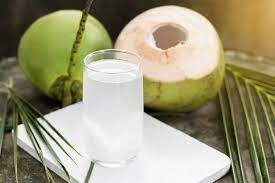Health Benefits of Turmeric Juice- Good for Health

Turmeric juice has many health benefits and has been touted as a natural anti-inflammatory. Learn how it reduces inflammation and cholesterol and can help prevent atherosclerosis. Here are 3 other reasons why turmeric is beneficial for your health. Here is a simple recipe for turmeric juice. Enjoy! -Grate turmeric using a garlic grater. Add the turmeric pulp to nut milk or water. Put the mixture into the refrigerator for 6 hours or overnight. Then strain through cheesecloth and press the juice from the turmeric pulp. Be sure to consume the juice within five to seven days. After this, it is safe to consume. If you have made your own turmeric juice, make sure to shake it well before drinking it.
Curcumin is an anti-inflammatory
Studies show that curcumin may reduce the symptoms of several inflammatory diseases, including cardiovascular disease and Alzheimer’s disease. The compound has been found to inhibit COX-2 enzymes, a key contributor to inflammatory disease. In addition to inhibiting COX-2, curcumin also blocks messengers that trigger and maintain inflammation. Although inflammation is beneficial in small amounts, too much of it can lead to collateral damage and increased risks for diseases. It can contribute to aging and even the development of diseases like arthritis.
A recent phase II clinical trial evaluated 40 smokers who had at least eight rectal aberrant crypt foci (ACFs). After three months of daily supplementation, the number of ACFs declined by nearly half. In addition, a daily supplement of two g/day significantly reduced the number of ACFs in these smokers. Other controlled clinical trials of curcumin are currently underway.
Another major health benefit of curcumin is its ability to fight inflammation in the brain. Amyloid-beta plaques are a result of inflammation in the brain. Curcumin inhibits the buildup of pro-inflammatory substances in the brain, which may lead to a potential treatment for Alzheimer’s disease. Furthermore, curcumin may prevent the formation of amyloid plaques by preserving normal blood vessel structures and mitochondrial function.
It reduces inflammation
Researchers have discovered that curcumin, the active ingredient in turmeric, is an effective cancer fighter. Though more research is needed, preliminary results suggest that turmeric may inhibit the growth of cancer cells. Moreover, it reduces the production of resistance artery endothelial cells, which is implicated in high blood pressure. The study also found that curcumin significantly reduced the incidence of heart attacks in 121 patients who were receiving a supplement.
Curcumin is a chemical compound in turmeric that is responsible for its yellow color. It may help fight various diseases, including psoriasis and acne. However, more robust studies are needed to determine whether turmeric can truly reduce inflammation. Although it has many benefits, it’s hard to prove whether turmeric reduces inflammation. The antioxidant properties of turmeric may help reduce inflammation. Therefore, you can try taking turmeric supplements.
Adding some raw honey or maple syrup to turmeric juice will boost its anti-inflammatory properties. Both raw honey and maple syrup are rich in polyphenols, which are important in the fight against inflammation. In addition to turmeric, you can add some pepper to the juice. Piperine enhances the absorption of turmeric and helps prevent inflammation. It also boosts the immune system. In addition to turmeric, it also helps treat autoimmune diseases.
It reduces cholesterol
It is no secret that plant sterols and stanols are beneficial for lowering cholesterol. These compounds are naturally present in some plant foods but not in large enough amounts to significantly lower your cholesterol levels. Food companies, however, have stepped in and fortified a number of foods with these compounds. Studies have shown that fortified foods can lower your cholesterol levels by up to 10%. While the amount of fortified food you eat is an important factor, some experts believe that plant sterols and stanols are the best foods for lowering cholesterol levels. Whether or not these compounds are beneficial for your body is largely dependent on how much of them you eat.
Consuming a diet rich in fiber can reduce your cholesterol levels. Eating more fruits and vegetables and reducing the amount of bad fats in your diet can help your body lower cholesterol levels. Adding more vegetables and fruits and nuts, seeds, fish, and whole grains to your diet is a great way to reduce cholesterol levels and prevent plaque buildup. Eating a balanced diet is one of the best ways to reduce your cholesterol levels and improve your overall health.
Taking supplements with fibre can also lower your cholesterol levels. The high fibre content of many fruits and vegetables blocks cholesterol absorption in the intestines. Foods rich in fibre include broccoli, peas, and beans. Some dietary supplements contain green tea extracts or other products containing the catechins found in tea. If you are taking medication, consult your doctor before stopping your dosage of these supplements. This may negatively affect your health.
It prevents atherosclerosis
The disease known as atherosclerosis occurs when the arteries become blocked and filled with plaque. This substance, composed of cholesterol, fat, and calcium, hardens and narrows the arteries. High levels of low-density cholesterol, also known as “bad” cholesterol, contribute to this condition. Medical treatment focuses on decreasing the underlying causes of the disease and addressing the symptoms. However, the benefits of statins for prevention of atherosclerosis are many and varied.





